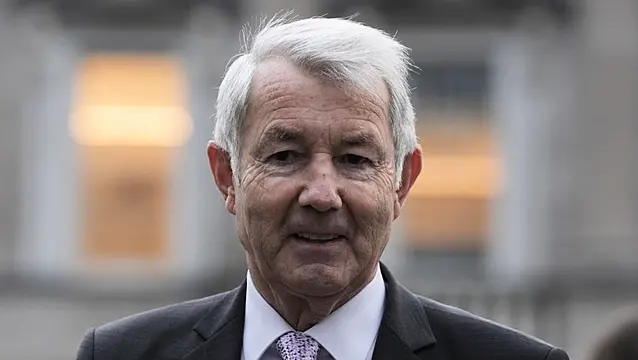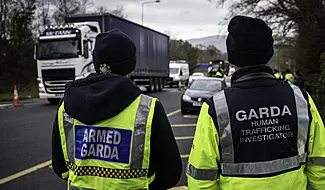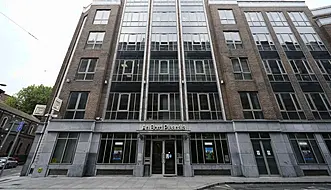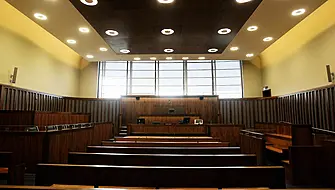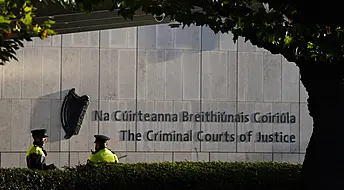Who is Michael Lowry?
Independent TD Michael Lowry (70) began his political career in 1979 when he was first elected to Tipperary North Riding County Council. He became a Fine Gael TD for Tipperary North in 1987 before becoming chairman of the Fine Gael Parliamentary Party in 1993.
A year later, he led the Fine Gael negotiations that resulted in the formation of the Rainbow government under John Bruton with Labour and Democratic Left and he was subsequently appointed Minister for Transport, Energy and Communications.
In 1996, he stood down from government and resigned from the Fine Gael party. He continued his political career as an Independent TD.
The Moriarty Tribunal, established in 1997 to investigate payments to politicians and related matters, found he had had an “insidious and pervasive” influence over the awarding of a mobile phone licence to Denis O’Brien’s Esat Digifone company.
Despite the controversy, he has won seven consecutive elections as an independent TD, consistently topping the polls each time.
After the General Election in 2020, Mr Lowry became a member of a newly formed group of Independent TD’s in the Dáil, known as the Independent Regional Group.
Why is he back in the news?
Simon Harris’s Fine Gael and Micheal Martin’s Fianna Fail are negotiating with independent TDs to form a government, with the parties’ combined seat numbers falling just shy of a majority following the general election.
The Regional Independent Group, which includes Mr Lowry among its eight members, has been negotiating as a single unit, with Lowry acting as the group's point of contact.
What were the Moriarty Tribunal’s findings back in 2011?
Firstly, that Mr Lowry, when Minister for Communications, “secured the winning” of the competition for a mobile phone licence for Denis O’Brien’s Esat Digifone.
Secondly, that Mr O’Brien conveyed financial benefits on Mr Lowry including a July 1996 payment, for IR£147,000 (€187,000), made when Lowry was still a government minister.
And, thirdly, that the benefits conveyed to Mr Lowry by Mr O’Brien “were demonstrably referable to the acts and conduct of Mr Lowry in regard to the [licence] process, that inured to the benefit of Mr O’Brien’s winning consortium”.
Among its other conclusions, the Moriarty Tribunal also found that when he was minister for communications, and heavily involved in Fine Gael’s fundraising efforts, Mr Lowry sought to intervene in a rent review on an office building on O’Connell Street, Dublin.
The building, owned by Ben Dunne and rented out to State-owned Telecom Éireann, would have seen its value increase significantly if the intervention had succeeded, the Moriarty Tribunal found.
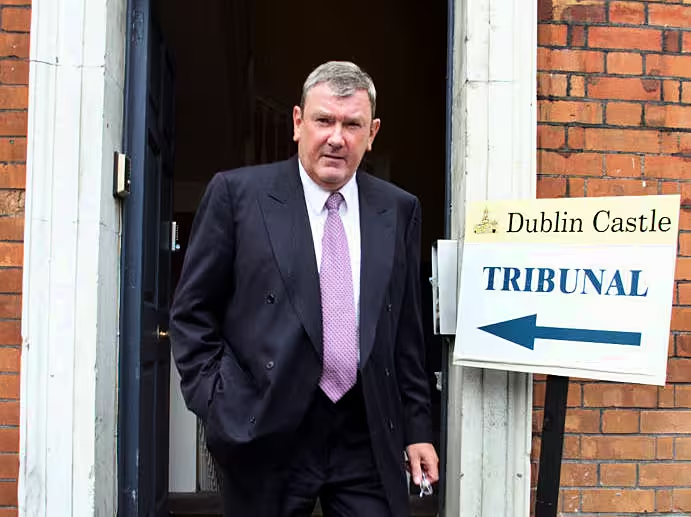
“What was contemplated and attempted on the part of Mr Dunne and Mr Lowry was profoundly corrupt to a degree that was nothing short of breathtaking,” the Tribunal concluded.
“What was reprehensible about his actions was that the tenant of the building was Telecom Éireann, of which, as minister for communications, Mr Lowry was the ultimate shareholder.”
In his evidence, Mr Lowry denied asking for the valuation increase, and both he and Mr O'Brien rejected the Tribunal's findings.
What has reignited the controversy?
Last year, it was reported that Mr Lowry was interviewed by gardaí from the Criminal Assets Bureau (CAB) who are investigating matters related to the Moriarty Tribunal.
Amid the talks to form the next government and with Lowry acting as the point of contact for the eight-member Regional Group of Independents, gardaí confirmed last Thursday that a file relating to its investigations around the findings of the tribunal has been forwarded to the Office of the Director of Public Prosecutions (DPP).
How has Mr Lowry responded?
In a statement last Thursday, Mr Lowry said “Last year, I received a request for assistance from An Garda Síochána.
“I freely, voluntarily and willingly met them on one occasion and was fully co-operative. This was the only engagement or correspondence I had with the Garda over the 14 years since the report was published.
“At no point, on that occasion or since, was it suggested that there were or are any charges being contemplated against me.
“I am fully confident that there is no basis for any liability attaching to me.”
Mr Lowry said he had steadfastly maintained there was no wrongdoing or impropriety attached to the award of the GSM licence (to Esat) 29 years ago.
“The award of the licence was made after a fully fair process, which included experienced members of the Civil Service and independent professional experts.”
He said the Chief State Solicitor’s office had defended the award of the licence in long drawn out civil cases taken by unsuccessful bidders.
Why has the investigation taken so long?
Although the Moriarty Report was published 14 years ago, evidence collected by a tribunal of inquiry cannot be used in criminal courts. Gardaí, therefore, had to conduct their own inquiries, albeit with the tribunal report as a guide.
